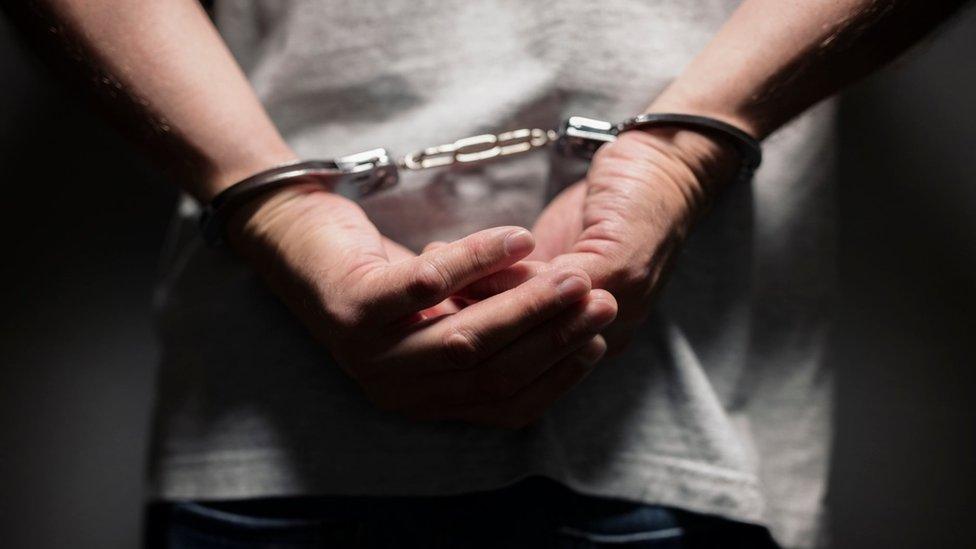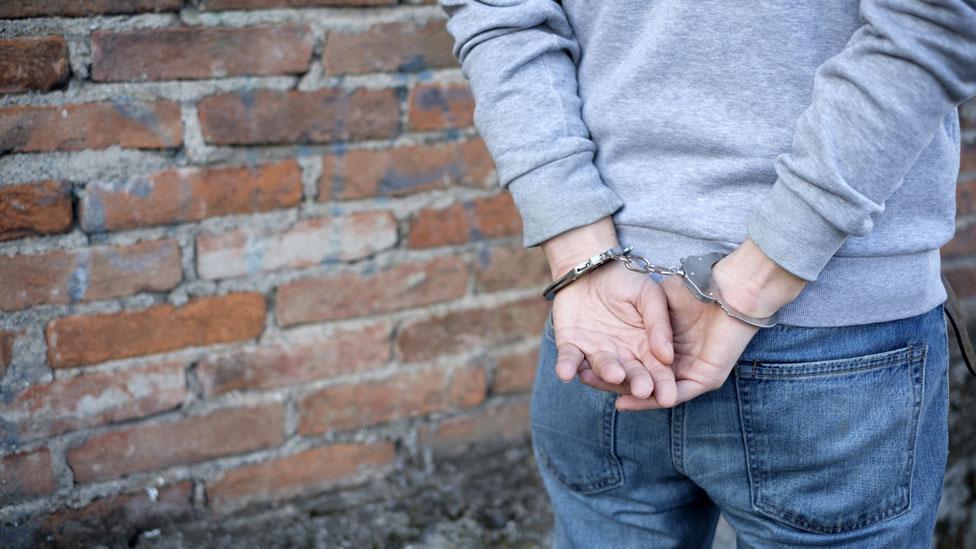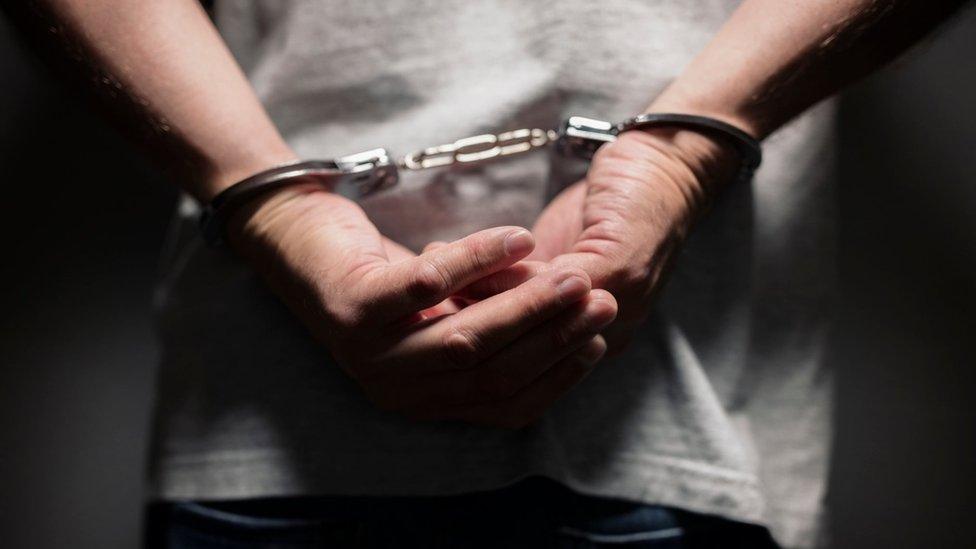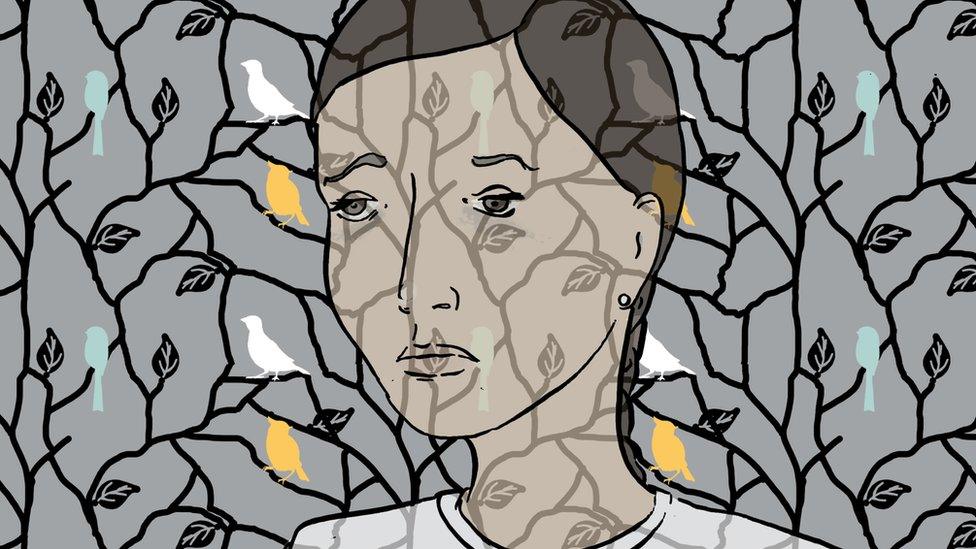Number of rape charges at lowest level for 10 years
- Published

The number of people charged with rape in England and Wales has fallen to its lowest level in a decade.
Crown Prosecution Service data shows 2,800 suspects investigated for rape in 2017/18 were later charged - a 23.1% decline compared with 2016/17.
Alison Saunders, director of public prosecutions at the CPS, said offenders were being brought to justice "wherever possible".
But sexual violence charity Rape Crisis said the trend was "deeply troubling".
A record number of cases - more than 1,300 - were "administratively finalised", meaning police stopped their inquiries after advice from prosecutors or after a suspect went missing.
Ms Saunders argued prosecutors had to "make their decisions after testing whether the evidence provides a realistic prospect of conviction", as well as whether a prosecution was "in the public interest".
Rape case referrals from the police to the CPS also dropped - by 9.1%.
Rape Crisis spokeswoman Katie Russell said that while victims and survivors were being celebrated for speaking out about sexual abuse, criminal justice successes were "not only failing to keep pace but diminishing".
She said the CPS needed urgently to explain both the reasons behind the falling figures as well as how they would improve the number of prosecutions.

Analysis
By BBC home affairs correspondent Danny Shaw
These figures suggest the CPS has dramatically switched the dial away from prosecuting rape suspects.
Rather than waiting for a full file of evidence to be submitted by detectives for a charging decision, CPS lawyers are increasingly having informal discussions with police about cases - known as "early investigative advice" - to ensure that only appropriate and proportionate lines of inquiry are followed.
As a result, hundreds more cases are being screened out - the official term for it is "administratively finalised".
It may well save police and prosecutors time and effort - but it has led to far fewer formal charging decisions and less people being prosecuted.
The consequence of what some might characterise as a risk-averse approach, in which only the strongest cases go to trial, is that the conviction rate has gone up.

Wednesday's revelations come from the annual Violence against Women and Girls (VAWG), external report, which covers offences including domestic abuse, rape, stalking and sexual abuse.
The CPS brought more than 100,000 VAWG prosecutions in 2017/18, which it says is more than a fifth of its total caseload.
It says the number of crimes prosecuted across all types fell by 10% last year.
Domestic abuse charity Women's Aid also expressed concern at the rape case figures.
Chief Executive Katie Ghose said the fall, despite "more victims than ever reporting domestic abuse to the police" was "deeply concerning".
An abuse survivor tells the BBC how she was groomed by a gang

What support is there for victims?
Rape Crisis runs a national free phone helpline on 0808 802 9999, which is open every day of the year. Alternatively, people affected by sexual violence can call the free, 24-hour National Domestic Violence Helpline on 0808 2000 247.
For those worried about their mental or physical health after being the victim of a rape or sexual assault, the NHS has a comprehensive advice page, external. To find your nearest NHS rape and sexual assault referral centre, follow this link, external.
Voluntary organisations such as Women's Aid, Victim Support, The Survivors Trust or Survivors UK (for male victims of sexual assault) offer support in the short or long term after the crime took place.
Police forces across the country also offer victim support, from the point of reporting a crime through to preparing for a court case.
- Published24 September 2018

- Published20 July 2018

- Published23 July 2018
